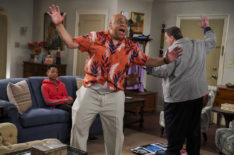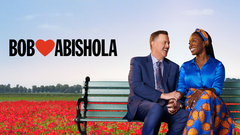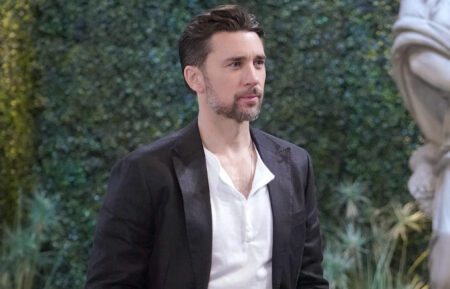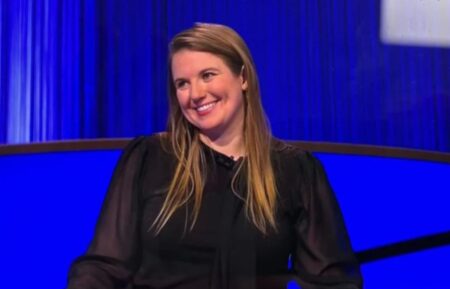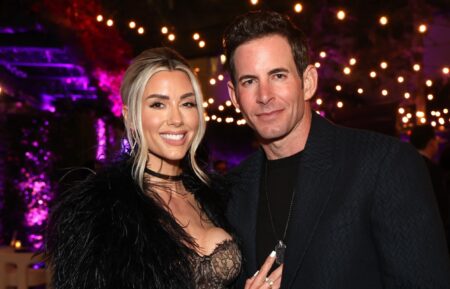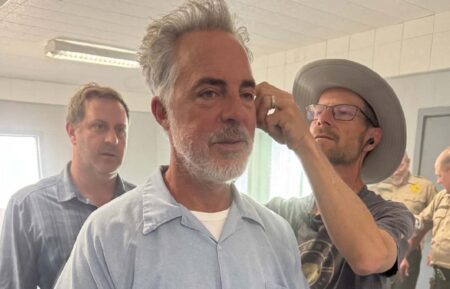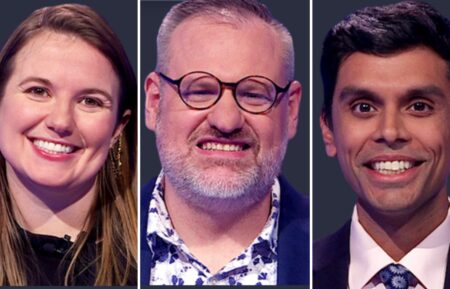‘Bob ♥ Abishola’: Gina Yashere on the CBS Sitcom Exploring Sexuality in Nigeria
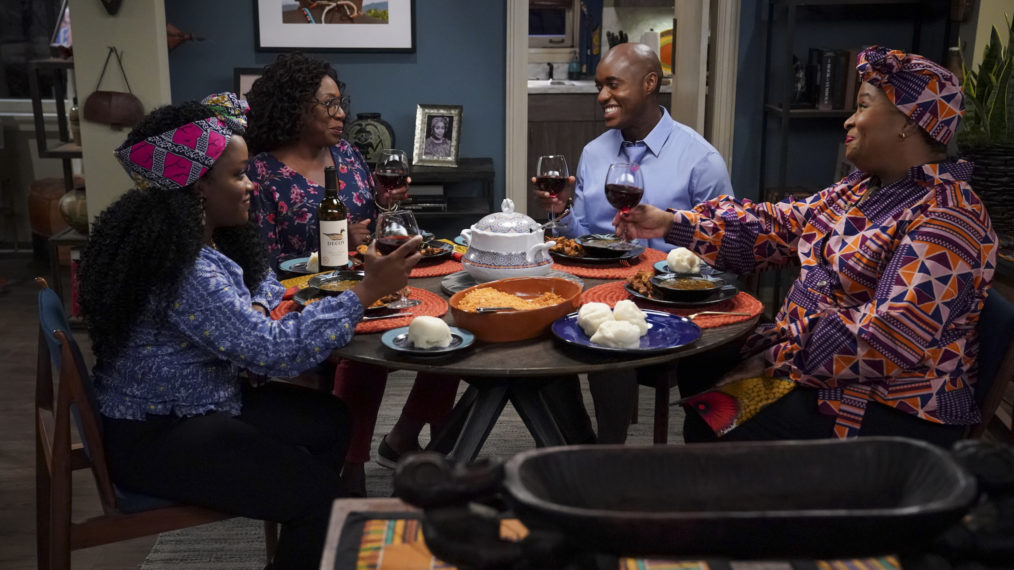
Q&A
Bob ♥ Abishola is tackling an important topic in the November 8 episode — being gay in Nigeria — and co-creator and star Gina Yashere (who plays Kemi) hopes that it opens the door for discussions.
“I really hope that people are talking about it and enjoy it,” she tells TV Insider. “And get to see what we’re trying to do as well as laugh their asses off all the way through, obviously.”
In “Fumble in the Dark,” Morenike (Tori Danner) confides in Kemi and Abishola (Folake Olowofoyeku), seeking their advice since it’s illegal to be gay in Nigeria. That’s something they struggle with. Yashere previews the episode and discusses balancing the humor with the important topic.
Was exploring what it means to be gay and Nigerian something you always planned to do?
Gina Yashere: It was always in the back my mind, obviously, because I am of Nigerian descent and gay, and we always try to cover every facet of Nigerian life and bring some interesting stories into the mix. When the opportunity arose, we thought, “Let’s go with it and see what happens.”
When did you do know you wanted to explore this through Morenike?
When we brought her in and we were talking about her going after Chukwuemeka [Tony Tambi], it was like, “Well, this would be a perfect cover story for a character who’s really gay.” And then as we started to go through the story outline and come up with the story, we were like, “Oh, this is going to be a good one.”
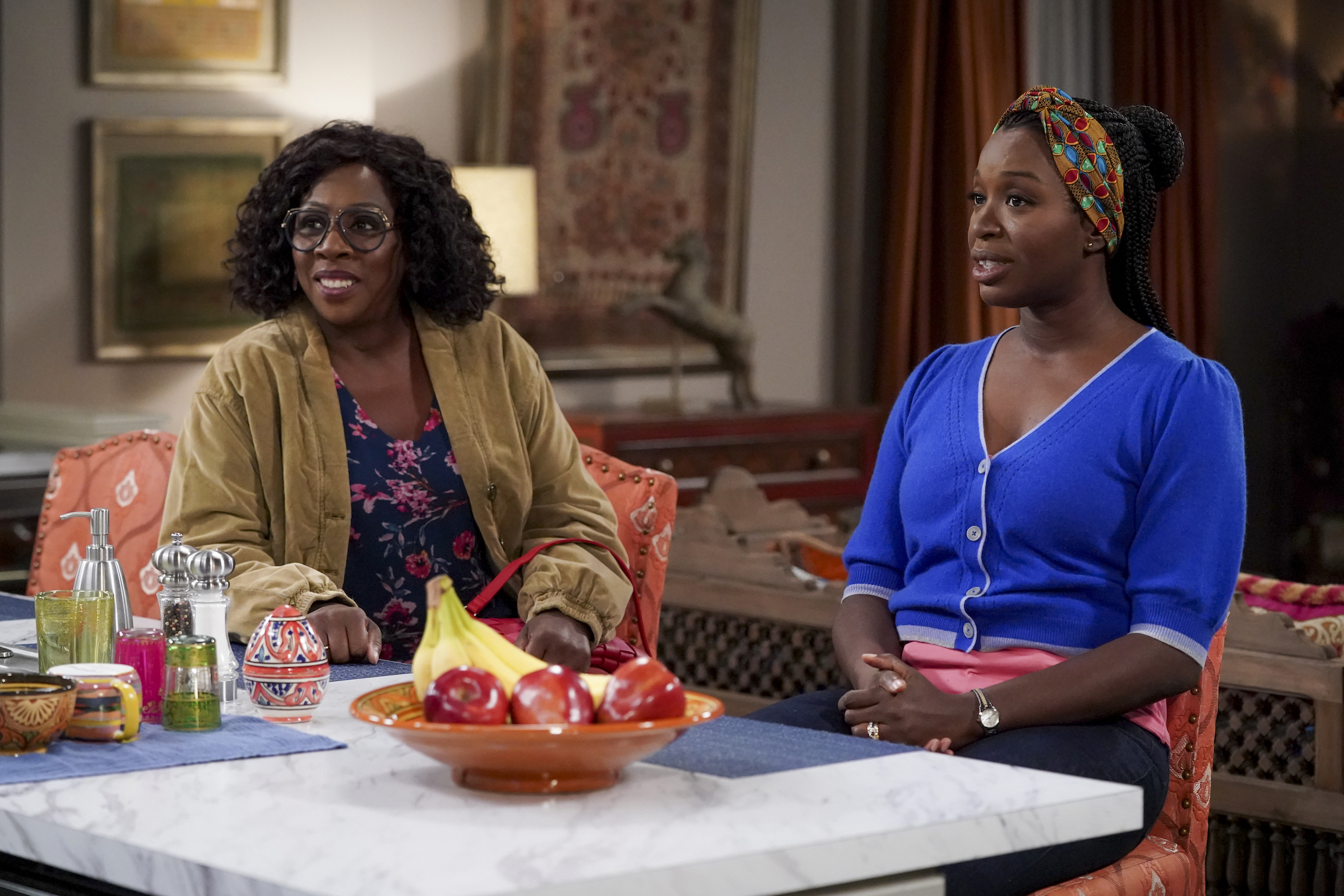
Michael Yarish/2021 Warner Bros. Entertainment Inc.
What can you preview about Morenike’s conversations with Abishola and Kemi? Because she’s sharing she’s gay with people who don’t quite know how to react.
Exactly. Because of the imported religion that the Nigerians have — Nigerians were never homophobic. If you go back hundreds of years before white people came to Africa, Africans tend to assign people characteristics through their spirit, rather than gender. We never looked at gender or sexuality. It was all about the spirit. And so there were queer people, African Kings and Queens, hundreds and hundreds of years ago. But when British people came to Nigeria, they brought Christianity and forced that on Nigerians and then Nigerians became Christian or further up in north Muslim, but mainly Christian down in the south. And that is the religion that they hold on to and they are quite fundamental with it. And so I feel like the homophobia was very much imported, even though they’d forgotten because it’s been so long. …
So these are some of the beliefs that have been passed down to the characters, hence Kemi and Abishola are of similar beliefs. So Morenike’s coming out to Kemi, but Kemi does not know what she’s talking about because it’s just not on her radar whatsoever. As far as she’s concerned, she has an idea of what gay people are supposed to look like and they’re not Nigerian and they’re not female and they’re not feminine representing, that kind of thing. So that’s why that first conversation when Morenike tries to come out to Kemi goes straight over Kemi’s head. She just does not see it.
As we’ve seen, Kemi hasn’t exactly been the warmest person to Morenike. What are we going to see from that relationship going forward?
Now that Kemi knows that Morenike is no longer a threat to her, I think she warms to her a little bit more. Obviously Kemi can be a little bit on the selfish side, so she may want to use this to her advantage. We’ll see if that happens. But definitely she warms to Morenike more and she may actually end up taking Morenike under her wing because not only is she no longer a threat, [but] as we’re hoping that audiences who are watching the show, you grow to love a character and then you start to feel empathy for them, I’m hoping that that will happen with Kemi.
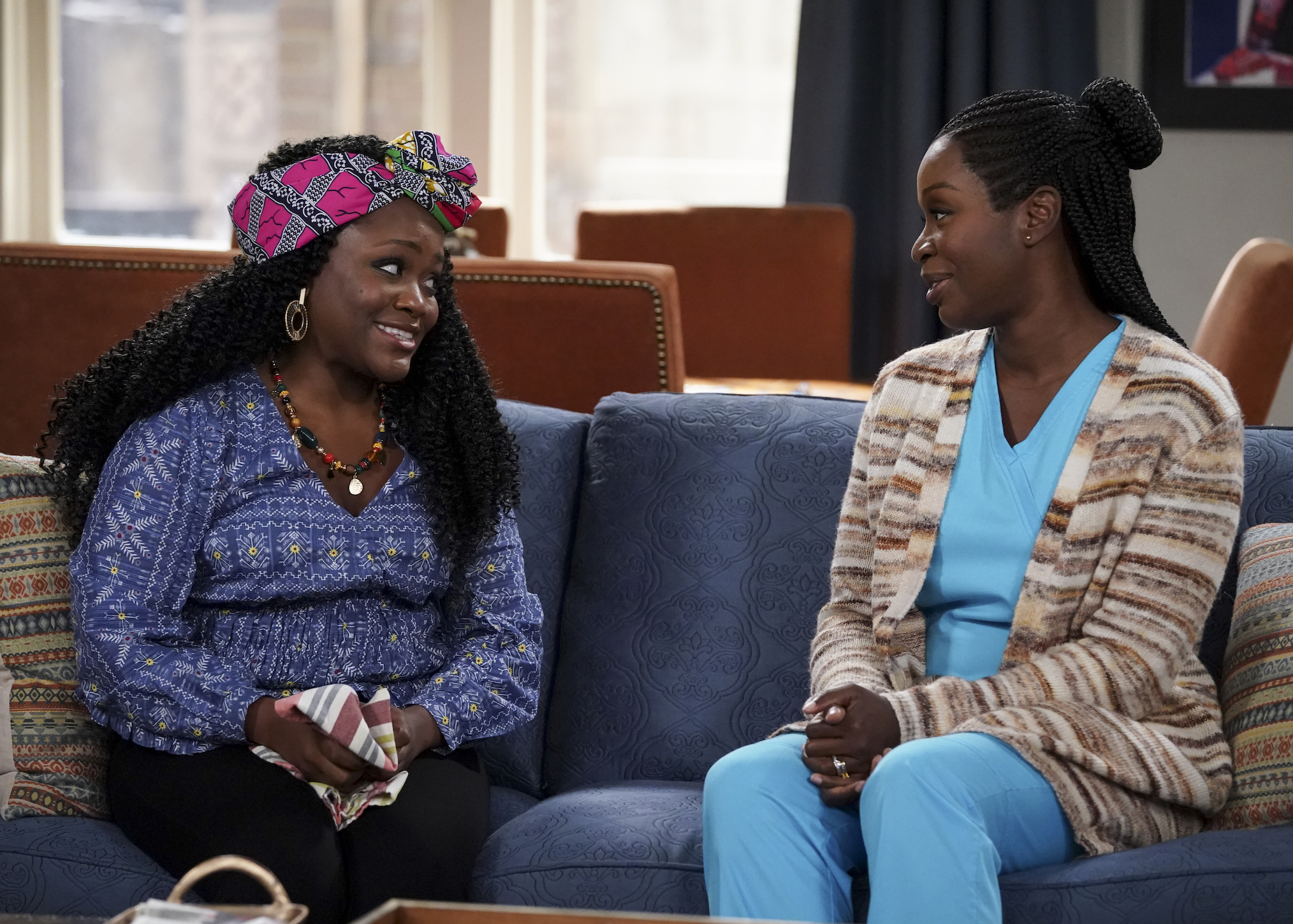
Michael Yarish/2021 Warner Bros. Entertainment Inc.
And what about Morenike and Abishola’s relationship?
That’s definitely a harder one, but we didn’t want to make a fairy tale ending where everyone goes, “Oh, it’s so wonderful. We’ve all come around and we love the fact you’re gay and we’re going to go to a gay pride event with you.” They don’t come around 100 percent and that’s real life. So we want to keep it true to real life. [Abishola and Morenike’s] relationship is thawing. It will get better. There will be some bumps in the road as there always is.
Who has the best advice for Morenike?
Definitely not Abishola’s advice, which was staying in the closet and pretending to be straight for the rest of your life so you could fit into Nigerian society. But when we were writing that scene, we wanted to make sure that we didn’t have the audience hate Abishola now and turn against her because people have grown to love Abishola, and we didn’t want her to become a hateful character by giving Morenike advice. But we’re just trying to highlight to be attitudes that have been ingrained in Nigerian Christians and Nigerian Muslims for a long time and how hard it is to separate yourself from those. I don’t think anybody’s given her really good advice yet. They’re still learning. And that’s what we are as people doing: We’re constantly learning and evolving.
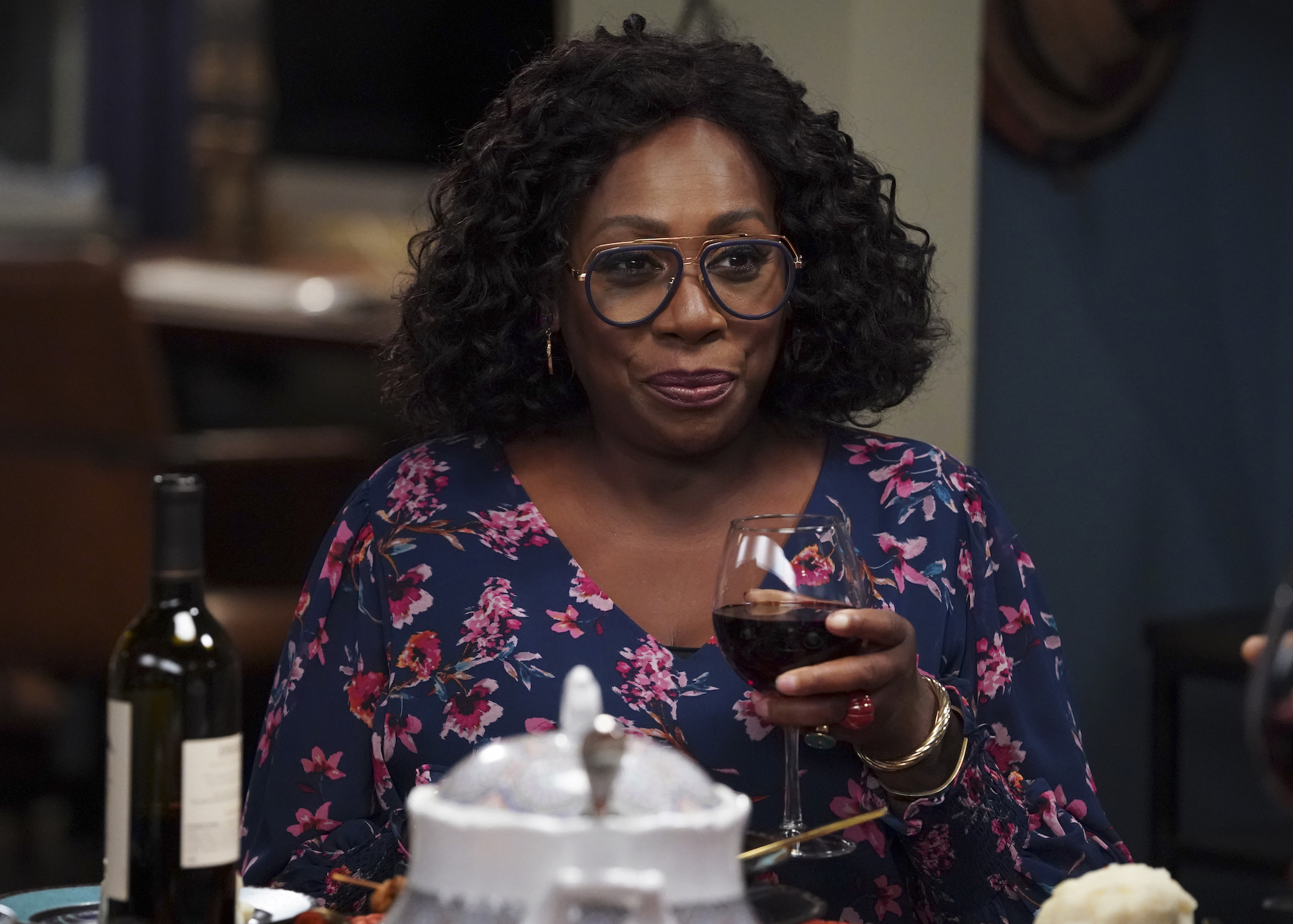
Michael Yarish/2021 Warner Bros. Entertainment Inc.
What’s coming up with Kemi and Chukwuemeka? Because there’s now also Terrence [K Woods]…
[Laughs] Well, we know that Terrence was mainly a tool to make Chukwuemeka jealous. There’s more coming and now that Kemi knows that Morenike is no longer a threat to her, then it might improve her relationship with Chukwuemeka.
It seems like Terrence is catching feelings.
He is catching feelings, but he was just a casualty of war.
Talk about balancing the humor and the serious nature of this episode, as well as the other storyline, because there are only about 20 minutes.
As a sitcom, first and foremost, we’re here to make you laugh. But I’m all about authenticity and telling good stories and doing it in a way where we’re not beating you over the head. We’re not trying to preach to you. We’re not trying to change the way you think. CBS is mainly an older white audience. They may never even come across a Nigerian in their life, let alone a gay Nigerian. So what we’ve done is created these characters they’ve really fallen in love with. Hopefully, they have empathy towards these people, and then see how their lives are and see themselves in them because this issue is not just a Nigerian issue. It’s a universal issue.
We’ve always wanted to balance telling good stories with humor. We’re preaching to people who probably would never have come to our church. While you’re laughing and enjoying the comedy, you might go, “I’m thinking about stuff, I’m learning stuff without realizing.” That’s what we’re doing. If you want to feed people medicine, you coat it in sugar. So they’re taking in this delicious thing and don’t realize they’re also healing themselves at the same time.
Speaking of balancing stories, how much are we going to see this going forward?
We never work out an entire arc. We go where the story naturally goes, so we don’t even know what’s going to happen in the future because we haven’t looked that far in the future. We go episode by episode, we follow the natural stories of the natural arcs of the characters. You’re definitely going to see more of Morenike. You’re going to see more of the story and you’re going to see how these relationships go through their peaks and troughs as people come to terms and more people find out about Morenike’s sexuality, but we don’t know yet because we haven’t written it.
Bob ♥ Abishola, Mondays, 8:30/7:30c, CBS
From TV Guide Magazine
How 'Countdown' Recruited Jensen Ackles to Go Full 'Die Hard'
Countdown boss Derek Haas talks creating the character around Ackles, and the cast teases the “Avengers”-like team of the crime thriller. Read the story now on TV Insider.

